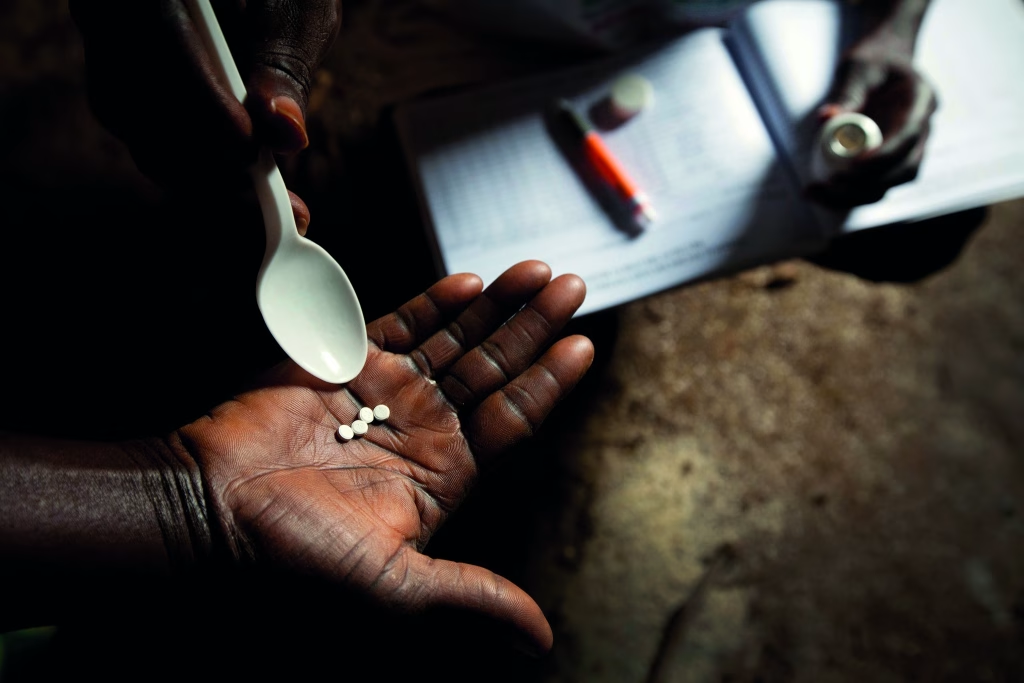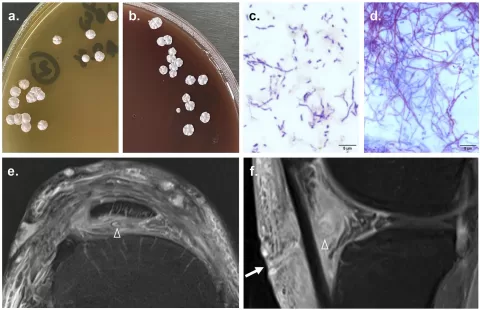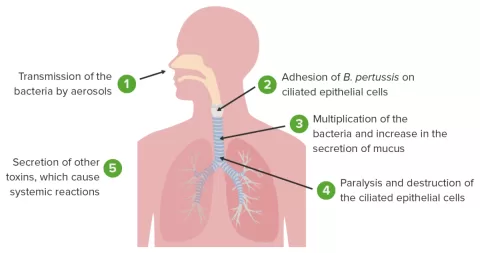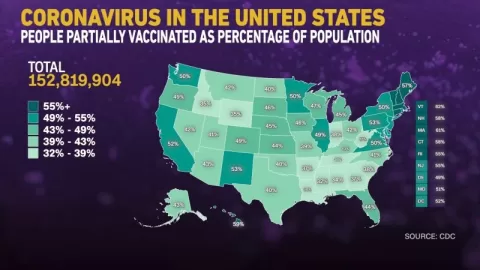Ivermectin safety in children has become a critical topic in recent medical research, particularly in the context of treating scabies, a common parasitic infection. Recent findings from a multicenter clinical trial have confirmed that this antiparasitic drug can be safely administered to small children, expanding its role in combating neglected tropical diseases. Traditionally, safe medications for children have been limited, especially for those weighing under 15 kilograms, due to a lack of robust safety data. However, with only one reported serious adverse event, the results are promising for the future of ivermectin as part of scabies treatment in pediatric care. This breakthrough highlights the potential for ivermectin to significantly affect public health strategies where tropical diseases in children are prevalent.
The exploration of Ivermectin’s effect on young patients sheds light on its potential as a safe treatment option against scabies. As an established antiparasitic agent, Ivermectin has effectively addressed a range of infections, yet its usage in children has been circumscribed due to safety concerns. Recent trials provide a fresh perspective on its clinical application, indicating it could be a viable solution for treating pediatric patients suffering from common parasites. This development not only informs healthcare professionals about the safety profiles of ivermectin but also inspires confidence in its broader application against various tropical diseases impacting younger populations. As ongoing research continues to unveil the drug’s benefits and safety, the future looks bright for integrating ivermectin into pediatric care.
Understanding Ivermectin Safety in Children
The safety of ivermectin in children has been a significant concern due to the lack of extensive clinical data supporting its use in this vulnerable population. Recent findings from a multicenter clinical trial conducted across various tropical regions, including Africa and South America, highlight that ivermectin can be safely administered to small children, particularly those weighing less than 15 kg. This development is crucial as it opens avenues for treating neglected tropical diseases like scabies, which disproportionately affect children in impoverished parts of the world.
The trial observed a cohort of 240 children, all diagnosed with scabies, who received varying doses of ivermectin alongside a placebo. Remarkably, the study recorded minimal adverse effects, with only one serious event noted—a temporary increase in liver enzymes that normalized over time. This evidence supports the notion that ivermectin is not only an effective antiparasitic treatment but also a safe medication for children, enhancing its usability in mass drug administration campaigns targeting tropical diseases.
The Efficacy of Ivermectin in Treating Scabies
Ivermectin has gained recognition as a potent treatment for scabies, a common parasitic infestation that causes significant itching and skin irritation. The drug, which operates by paralyzing and ultimately killing the scabies mites, shows remarkable efficacy even in smaller doses. This is especially important in regions where scabies outbreaks among children are frequent due to overcrowded living conditions and poor hygiene.
Studies have demonstrated that ivermectin can rapidly alleviate the symptoms of scabies, providing relief to affected children. By including ivermectin as part of treatment protocols, healthcare providers can implement a more comprehensive approach to combatting this uncomfortable and spreading condition. The successful use of ivermectin in clinical trials not only highlights its benefits against scabies but also reinforces the importance of safe medications for children in public health initiatives.
Ivermectin’s Role in Combatting Tropical Diseases
Tropical diseases significantly affect public health, particularly in low-income countries where access to effective medications is limited. Ivermectin stands out as a cornerstone of many treatment regimens for various tropical diseases, including onchocerciasis and lymphatic filariasis. By extending its usage to treat scabies in young children under 15 kg, the implications for reducing the burden of these diseases are profound.
The inclusion of small children in ivermectin treatment protocols promises to enhance public health responses to these parasitic infections. The drug’s ability to mitigate the effects of tropical diseases not only improves individual health outcomes but can also lead to decreased transmission rates within communities. This multifaceted impact emphasizes the importance of integrating effective treatments such as ivermectin into broader health initiatives aimed at eradicating neglected tropical diseases.
Clinical Trials Supporting Ivermectin Use in Pediatrics
The recent clinical trials evaluating the use of ivermectin in small children have provided invaluable insights into its safety and effectiveness. Researchers meticulously monitored a diverse group of participants from nations such as The Gambia and Kenya, allowing for a robust analysis of treatment outcomes in diverse pediatric populations. The results demonstrate that ivermectin can be a safe option in managing scabies and possibly other parasitic infections.
The findings also encourage further research into the pharmacokinetics and lasting effects of ivermectin in pediatric patients, particularly considering the commonly present constraints within current treatment frameworks. By revealing that ivermectin can effectively treat scabies in young children, these clinical trials bolster the case for its inclusion in global health strategies aimed at fighting tropical diseases among vulnerable populations.
Implications of Ivermectin Trials for Global Health Initiatives
The implications of the trials studying ivermectin in children reach far into the realm of global health initiatives. With the ability to treat scabies effectively in younger populations, public health organizations can adopt a more inclusive approach in their eradication programs. As neglected tropical diseases continue to plague many remote areas worldwide, ensuring access to safe medications for children is paramount, thereby enhancing the reach and effectiveness of healthcare systems.
By showcasing ivermectin’s potential in small children, these trials not only instigate a shift in treatment protocols but also advocate for increased funding and research into pediatric treatments for various tropical diseases. This paradigm shift is essential for mitigating the impact of diseases that have long been dismissed due to outdated limitations in medicine, ultimately paving the way for improved health outcomes for the world’s most vulnerable.
Addressing Concerns about Ivermectin Use in Young Children
While ivermectin has demonstrated safety and efficacy in addressing scabies among young children, it is crucial to continue addressing healthcare providers’ concerns about its use. Many medical professionals have historically been hesitant to prescribe antiparasitic drugs to pediatric patients due to fears surrounding potential side effects and adverse events. However, the latest trial results offer significant reassurance, indicating that the risks are remarkably low.
Additionally, educational campaigns aimed at healthcare providers can further alleviate concerns and encourage acceptance of ivermectin as a safe treatment option. By improving provider confidence and awareness about the safety profile of ivermectin, more children suffering from scabies can receive timely treatment, reducing disease prevalence and improving overall community health.
The Future of Ivermectin in Pediatric Medicine
The future of ivermectin in pediatric medicine looks promising, especially as growing evidence supports its safety in small children. With new clinical findings confirming that even the youngest patients can benefit from ivermectin treatment, public health authorities are likely to expand treatment guidelines accordingly. This evolution in thinking will enable more children suffering from scabies and other parasitic infections to access effective treatment.
As the global health landscape continues to evolve, the integration of ivermectin into pediatric care highlights the need for ongoing research and surveillance. Future studies will undoubtedly explore additional therapeutic uses of ivermectin, enhancing our understanding of its potential in combating not only scabies but a spectrum of neglected tropical diseases affecting children globally.
Exploring Alternatives to Ivermectin for Treating Scabies
While ivermectin remains a vital option in treating scabies, it is also essential to explore alternative treatments. Options such as topical permethrin cream are commonly used; however, resistance to some of these medications is emerging, particularly in certain regions. This phenomenon underscores the necessity for a multipronged approach to treatment.
Research into alternative medications for scabies, alongside established treatments like ivermectin, can safeguard against potential resistance and ensure that effective treatments remain available. By fostering a comprehensive understanding of all available options, healthcare providers can better tailor treatments to individual pediatric patients, ultimately optimizing care.
Cross-Disciplinary Research Enhancements
Incorporating insights from various fields, such as dermatology, pediatrics, and public health, could significantly enhance research surrounding ivermectin and its applications in treating children with scabies. Collaboration between these disciplines can lead to innovative treatment protocols and better understanding of the mechanisms behind drug efficacy and safety in diverse populations.
Such cross-disciplinary efforts can provide comprehensive care frameworks that address not only the treatment of scabies but also the educational needs of caregivers, ensuring that children receive holistic support throughout their treatment journey. This approach may yield significant long-term benefits, marking a shift in how pediatric care is approached within the realm of tropical diseases.
Community Awareness and Education on Ivermectin
Raising awareness in communities about the safe use of medications such as ivermectin for treating scabies in children is vital. Empowering families with knowledge about the signs of scabies and the effectiveness of treatment options can lead to quicker diagnosis and treatment, reducing the spread of the disease. Moreover, informing parents about the recent clinical trials can enhance trust and acceptance of ivermectin as a viable treatment.
Educational initiatives can also involve local healthcare workers and schools, ensuring that information about neglected tropical diseases is disseminated widely. By fostering a culture of awareness and understanding, communities can respond more effectively to the impacts of scabies and other tropical diseases, ultimately improving health outcomes for children.
Frequently Asked Questions
What is the safety profile of ivermectin in small children for scabies treatment?
Recent clinical trials indicate that the antiparasitic drug ivermectin is safe for small children, specifically those weighing between 11 and 33 pounds, when used to treat scabies. The findings support the use of ivermectin as an effective treatment option while showing only mild side effects in most cases.
Are there specific risks associated with ivermectin use in children under 15 kg?
Ivermectin has traditionally been avoided in children under 15 kg due to limited safety data. However, the latest clinical trials demonstrate that ivermectin can be safely administered, with only one serious adverse event reported, which was a temporary increase in liver enzymes that returned to normal.
Can ivermectin be considered a safe medication for children suffering from tropical diseases?
Yes, ivermectin has shown to be a safe medication for treating tropical diseases, including scabies, in children weighing as little as 11 pounds. The drug’s efficacy and safety profile in clinical trials provide reassurance for its use in this vulnerable population.
How effective is ivermectin as a scabies treatment for young children?
Ivermectin has proven to be effective against scabies in young children under clinical trial conditions. The studies have documented a significant efficacy rate, confirming the drug’s role as a viable treatment option for children affected by this condition.
What safety measures were included in the ivermectin clinical trial for small children?
The ivermectin clinical trial involved thorough safety assessments, including regular blood tests to monitor potential adverse effects. Researchers administered doses ranging from 200 to 800 µg per kg and documented any adverse events, ensuring careful monitoring throughout the study.
What are the implications of ivermectin safety findings for global health initiatives in children?
The confirmation of ivermectin’s safety for children enhances the effectiveness of global health initiatives targeting neglected tropical diseases. It opens avenues for broader mass drug administration campaigns, potentially reducing the burden of diseases like scabies in young populations.
How does ivermectin help in treating neglected tropical diseases in children?
Ivermectin acts as an antiparasitic agent effective against multiple neglected tropical diseases, including those that affect children. Its safe use in smaller pediatric populations allows for effective intervention and management of diseases like scabies, contributing to improved child health outcomes.
| Key Point | Details |
|---|---|
| Ivermectin Safety | Ivermectin has been found to be safe for small children, as indicated by a recent multicenter trial. |
| Trial Background | Researchers conducted a double-blinded trial involving 240 children infected with scabies, weighing between 11 and 33 pounds. |
| Adverse Events | Only one serious adverse event occurred, which was a temporary increase in liver enzymes that returned to normal. |
| Efficacy against Scabies | Ivermectin was effective in treating scabies symptoms in the trial participants. |
| Global Health Impact | The findings support the use of ivermectin in campaigns against neglected tropical diseases, especially for children under 15 kg. |
Summary
Ivermectin safety in children has gained significant attention following a new study showing that the drug can be safely administered to small children for treating scabies. This groundbreaking trial demonstrated that not only is ivermectin effective, but it is also safe, with only mild side effects reported. The findings may greatly enhance public health initiatives targeting neglected tropical diseases, ensuring safety and efficacy for vulnerable populations.
The content provided on this blog (e.g., symptom descriptions, health tips, or general advice) is for informational purposes only and is not a substitute for professional medical advice, diagnosis, or treatment. Always seek the guidance of your physician or other qualified healthcare provider with any questions you may have regarding a medical condition. Never disregard professional medical advice or delay seeking it because of something you have read on this website. If you believe you may have a medical emergency, call your doctor or emergency services immediately. Reliance on any information provided by this blog is solely at your own risk.








